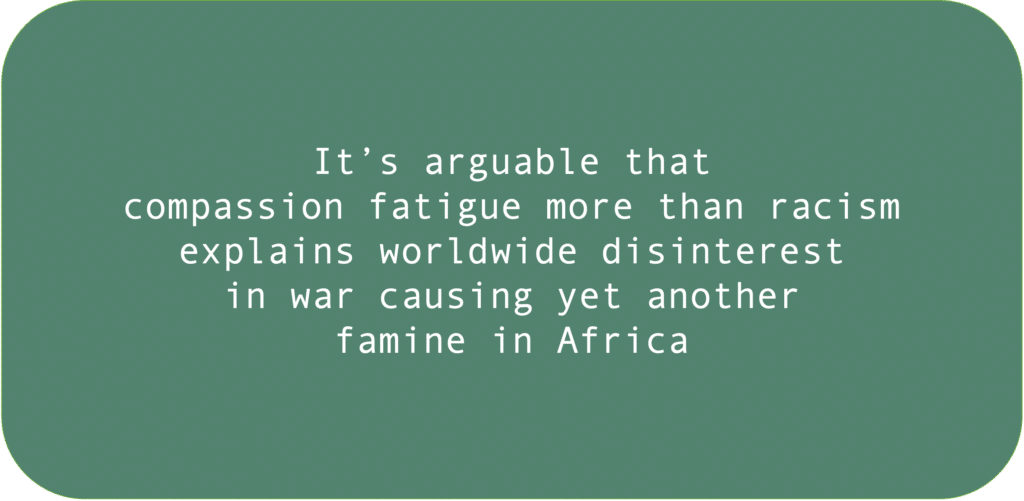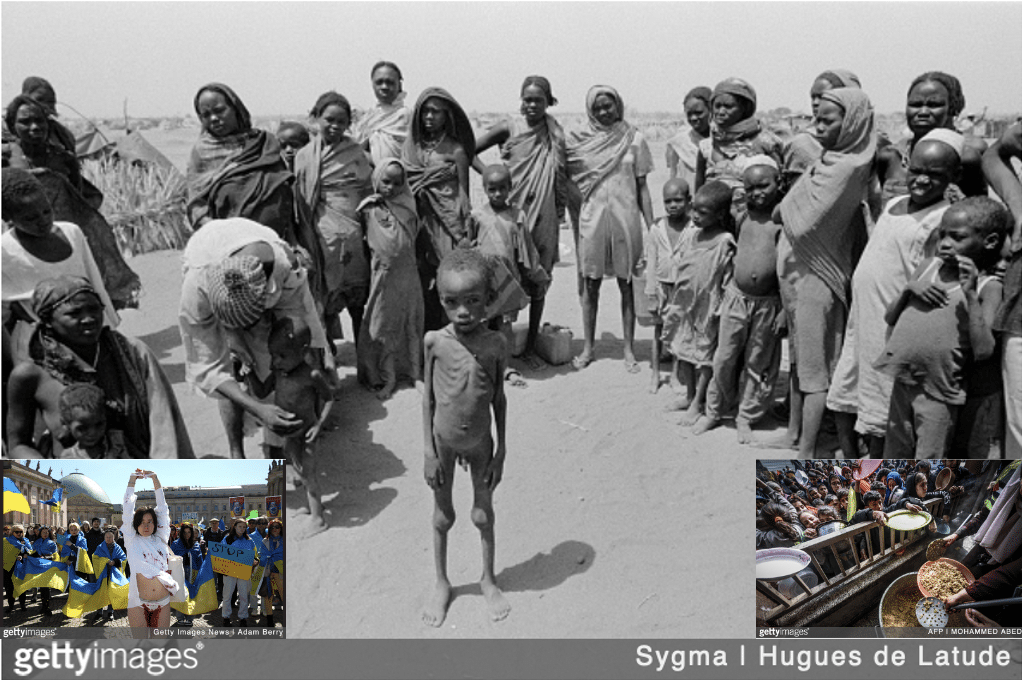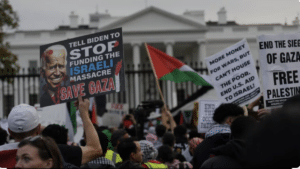
Darfurians starving in the shadows
World attention remains focused on the genocidal war Russia is waging in Ukraine. The alleged war crimes Russians are committing there include kidnapping Ukrainian children en masse and raping Ukrainian women as a weapon of war.
But world attention has become fixated on the genocidal war Israel is waging in Gaza. The alleged crimes Israelis are committing there include launching indiscriminate bombings and blocking humanitarian aid, which has the UN warning that “famine is imminent” with over one million Palestinians on the brink of starvation.
Given that, you’d be forgiven for forgetting (or not knowing) that famine is imminent in the Darfur region of Sudan.
Nearly five million people in Sudan are at risk of ‘catastrophic’ hunger in the coming months, the United Nations has warned, calling for the country’s warring parties to allow aid deliveries. …
[UN aid chief Martin Griffiths said] it was likely that some people in West and Central Darfur would move into famine conditions as security worsens, adding that cross-border aid delivery from Chad to Darfur is a ‘critical lifeline.’
(Al Jazeera, March 16, 2024)
Thirty-five conflicts are raging across Africa, diffusing the crisis in Darfur. Those conflicts range from Burkina Faso and Cameroon to Somalia and South Sudan. That’s disheartening enough.
But, alas, “crisis in Darfur” has become redundant. After all, I’ve been sounding alarms about genocidal famine there for nearly two decades. Notably, my commentaries in this regard include “Help! Ethnic cleansing and forced starvation persists in Darfur” on December 1, 2005, “Myanmar Cleansing Rohingyas Like Sudan Cleansed Darfurians (Remember them?)” on August 30, 2017, and “What Sudan Ceasefire? Army Launches Offensive against RSF” on April 20, 2023.

A tale of two diasporas
Can you even imagine, 19 years from now, me still sounding alarms about a genocidal war raging in Ukraine or Gaza? I think not.
 Of course, that’s primarily because worldwide interest in resolving these two conflicts is ten times greater than in resolving any conflict in Africa. And that’s primarily because people in the diaspora from those countries have more influence and drum up more interest than those in the African diaspora.
Of course, that’s primarily because worldwide interest in resolving these two conflicts is ten times greater than in resolving any conflict in Africa. And that’s primarily because people in the diaspora from those countries have more influence and drum up more interest than those in the African diaspora.
Take, for instance, the stark disparities in awareness and activism when comparing the efforts of the Darfurian diaspora and the Palestinian diaspora, especially inextricably linked as it is to the Israeli diaspora. Indeed, it’s arguable that the voices of pro-Palestinian groups are drowning out those of pro-Darfurian groups.
However, the lack of interest worldwide does not mean a lack of suffering in Darfur. That’s why, despite the odds, I keep doing what little I can to stir interest in and draw attention to this ongoing crisis.
No doubt, conflict and famine in Africa have become devastatingly commonplace. And I fully appreciate the compassion fatigue news about it evokes. But I join UN aid chief Martin Griffiths in pleading that this is no reason for the world to turn a blind eye to this catastrophic crisis.